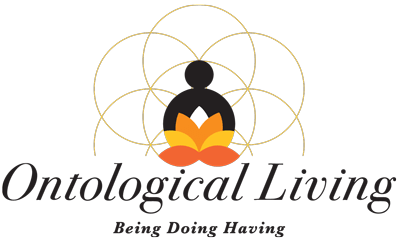Staking Your Life on a Vow: Honoring the Sacred by Owning Up to Yourself
The self is not fixed, nor do our lives need to be fixed.
But to effect transformative action, we need orientation—we need to cultivate sincerity and clarity of intention to navigate through the obstacles, cross-purposes, and conversations that do not serve us.
A vow is an existential compass reminding us of who we want to be, and what really matters in our lives—picking us back up when we’ve lost direction, and anchoring us in the idea that we create our world by declaring who we are.
Vows integrate the energies of the self toward pursuits woven out of the fabric of our commitments, promises, and requests.
But how is a vow distinct from an ordinary promise?
Vows might be understood as “solemn oaths.” By “solemn,” we do not mean something gloomy or dogmatically rigid. The Latin, sollemnis can mean something regular or rhythmic, or something binding. We can think of “binding” as something flexible, and yet steadfast—like the binding of a book, it acts like a spine, holding together what would otherwise fall apart or get shuffled into a scattered juxtaposition of lost opportunities.
If the self is a clearing in which a text is constantly written through our declarations and assessments, and through our promises, assertions, and requests, then our vows bind our actions into a meaningful narrative, and keep them from devolving into a collation of jumbled ideas and scattered pages.
But the vow is not just an ordinary commitment. When we own our vows, we become creators, and open-up the sacred. By “sacred,” we mean celebrating the act of creation itself by sacrificing what is haphazard and jumbled.
With an authentic vow, we celebrate our role as creators.
So what sort of speech act is a vow?
Like promises, vows hold us accountable to actions. Like declarations, vows bring things into being, and clear a space in which we can coordinate actions rich in value.
“I declare that I am a faithful partner.”
“I declare that my purpose is to empower and serve myself and others.”
We might just as easily say, “I vow to serve others.”
However, declarations are not always so significant, nor do they open-up the sacred.
“I declare that this meeting is over.”
“I declare that it’s closing time.”
Unlike ordinary declarations, authentic vows are “solemn,” “binding,” and “sacred,” because they integrate our intentions toward purposes we deeply care about, while celebrating the integrity of creation itself.
Finally, when we break a promise, or fail to live up to a declaration, we may let ourselves or someone else down.
When we break an authentic vow, we become another person—we lose ourselves.
Challenge yourself to listen deeply to the vows you make, many of which are unconscious, and to uncover the vows motivating the people around you, because in that listening lies the opportunity for creating an authentic and fulfilling life, one that you can own and have a real stake in.
© 2016, Ideal Coaching Global, Kevin Perry and Bettie J. Spruill








